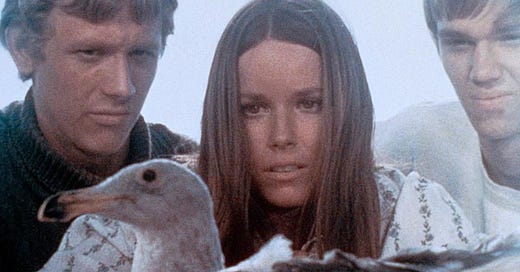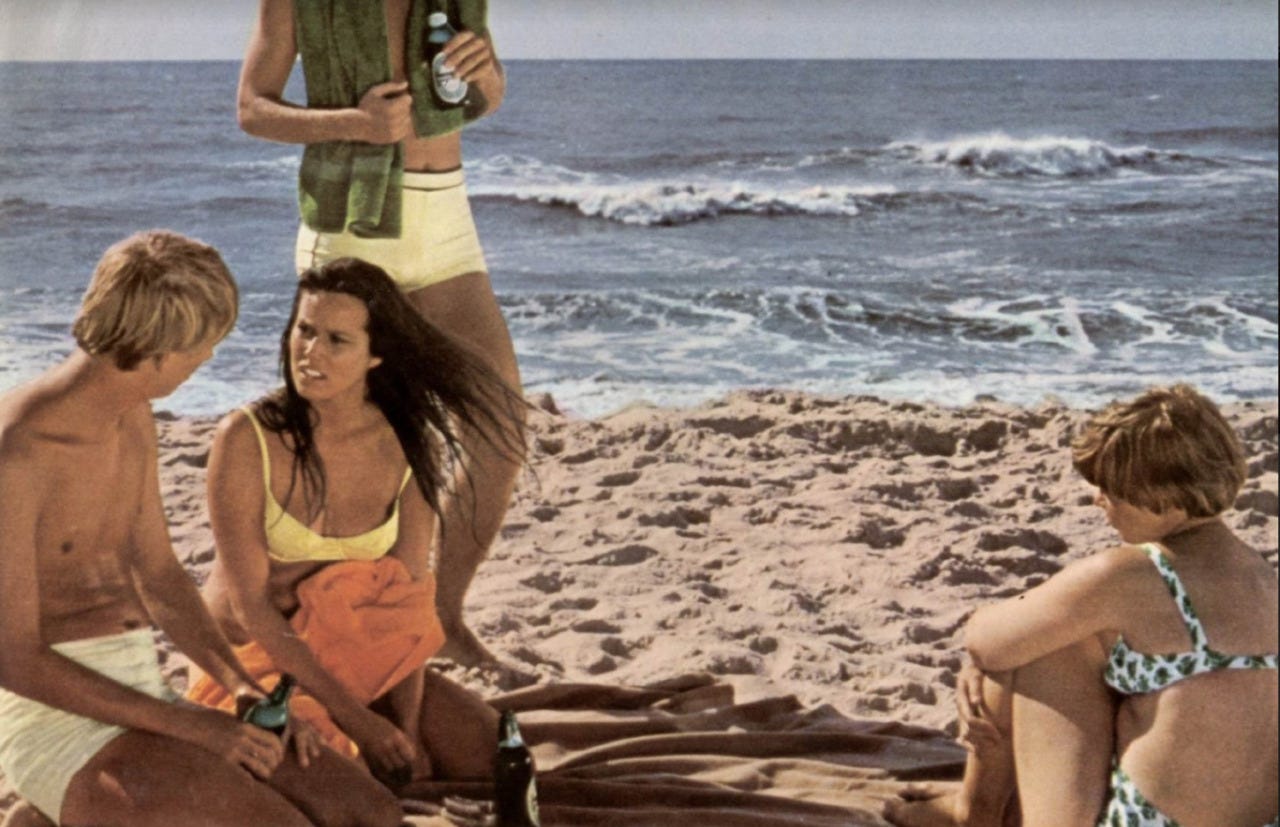I wouldn’t say I’m a particularly mean-spirited viewer, but I always make sure to interrogate my relationship to violence on screen, to make sure that discomfort serves a purpose beyond basic shock. I guess it’s a matter of perspective too though. What could feel exploitative to one person could be illuminating to another. Not everyone is gonna vibe with Catherine Breillat’s Fat Girl, and some people are going to think that The Night Porter is the greatest film ever made.
I’ve been a fan of Frank Perry for a while. I like his relationship to the taboo, to things that feel disquieting. I’m a Mommie Dearest defender and a fan of David and Lisa and Diary of a Mad Housewife. I also believe that Play it as It Lays is one of the more underrated American films from the 1970s. Last Summer, his 1969 film written by his then wife Eleanor Perry, is a whole other beast.
—
Three teens vacation with their families on Fire Island and strike up a sinister friendship. Last Summer is not Lord of the Flies evil but something worse. There’s no social order upheaval/experiment that justifies their nastiness. They’re horrible in a way that teens often can be, where shades of sociopathy leak from their oily pores and it’s up to us to distinguish between manifestations of youthful insecurity and a pure, unadulterated taste for cruelty.
Peter and Dan, two scrawny blonde dudes, meet Sandy (Barbara Hershey) and things turn left. Sandy is manipulative, seductive, a sort of archetype for the ultimate corrupting woman whose sole purpose is to summon the boys’s most primal urges. This feels deliberate, and while the Perrys draw the three with specificity, there’s a generality to them that feels useful. We recognize the dynamics, the two boys lusting after the more mature girl. One is more confident, the other precocious and sensitive.
It starts off innocent enough, until it turns. The three first meet when they find a wounded seagull with a fish hook lodged into its wing. Sandy is devastated and implores the boys to perform an impromptu surgery. They save its life, which is perhaps the cruelest thing they could do to this poor bird. Shortly after, Sandy, in what feels like an ironic and bored game to her, adopts the bird and forces it to fly again. She ties a string to it and repeatedly throws it in the air, laughing when the bird fails to move and falls clumsily onto the sandy beach. The boys echo her amusement, but it’s unclear if they enjoy the ritual or they enjoy Sandy’s attention and affections. It’s actually unclear if anyone enjoys anything or if they’re just wrapped up in the performance of rebellion. One day the bird bites Sandy, and she kills it.
Their sleepy summertime rituals are eventually interrupted by Rhoda, another teen also on vacation. She shows up and admonishes the group for what they’re putting the bird through. She’s earnest, lonely, innocent, and an easy target. The tragedy of Rhoda is that she’s actually the most self-assured, the only one of the group who has a formed sense of identity and morality. When they get high for the first time, when they torture the bird, and when they set up a fake date with an eager stranger just to fuck with him, she resists. And her willfulness becomes a project for the three. The joy of their summer is goading her into doing things that make her uncomfortable. Why? To feel better about themselves for doing the same? Or because they truly suck?
The film has a nightmarish finale, even though it feels inevitable. The tension between the four reaches its apex, and the last ten minutes of Last Summer contain some of the more shocking moments I have seen on screen.
—
But that’s not what makes Last Summer remarkable. I keep thinking about my own youthful dabbling in meanness. There’s a power in it, in performing acts that serve no other purpose than to maim. If you’re decent enough, there’s a subsequent guilt and fear that accompanies doing something bad. A reckoning that hopefully shapes you into a more thoughtful, less susceptible to pressure, person. Burgeoning adulthood really fucking blows, and I was struck by the Perrys commitment to showing this, without fear of what seems to me like a real darkness we all possess.
Last Summer is honest in a way most teens movies are not. With our not fully developed brains, we are capable of so much, and they don’t shy away from the more dramatic possibilities. I have never seen a movie about peer pressure and insecurity that is as subtle and menacing as this. Again, it all unfolds sleepily, in a way the summers of our youth usually unfold. There are long days of insignificance, of heat and rain and passing thoughts. But the moments we do remember are often the ones where we’ve pushed at boundaries, where we’ve acted in a way that will come to define our characters and values. Last Summer is foundational.





